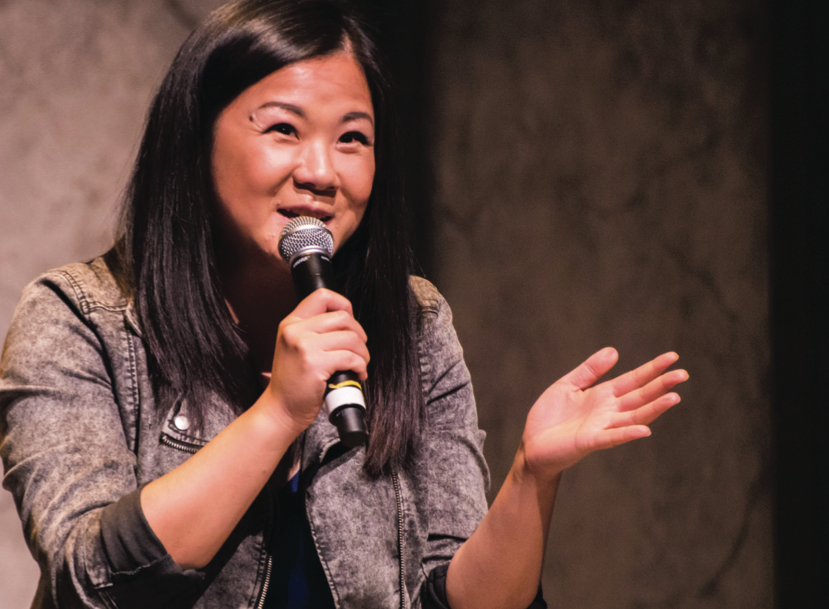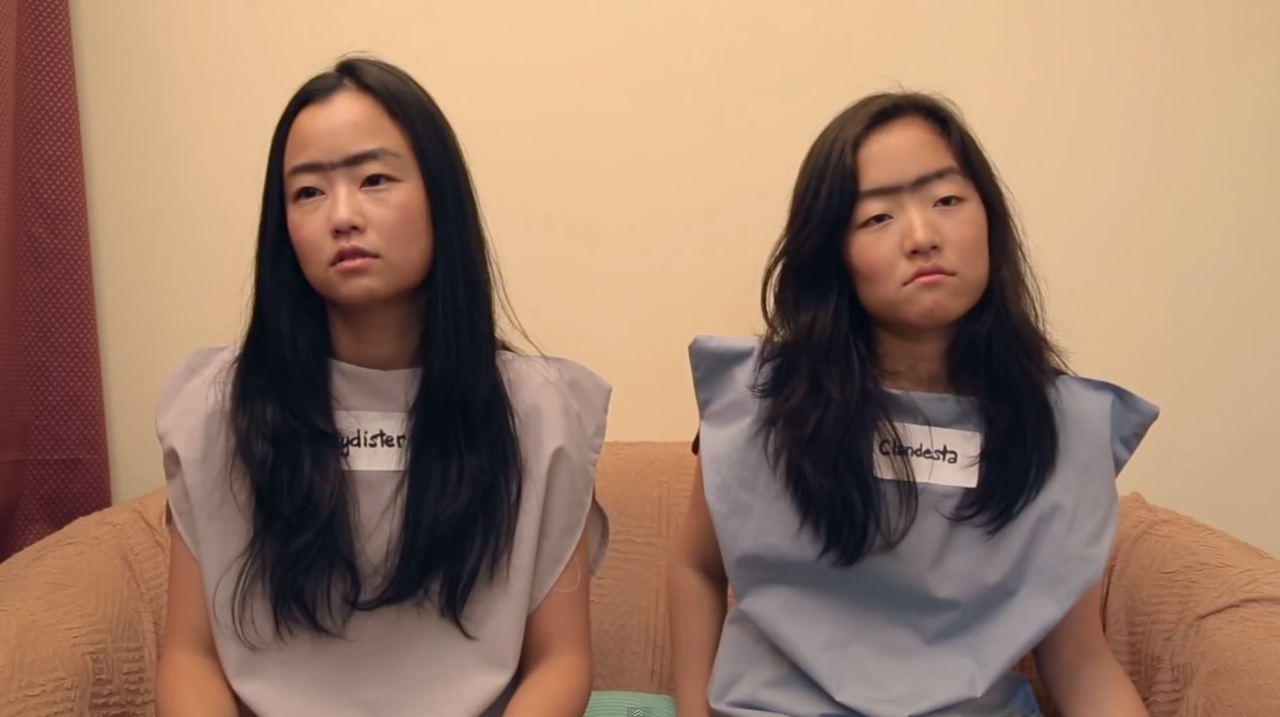The first time Jenny Yang performed a standup routine at an open mic, it felt like time had come to a standstill. Her set at the Tuesday Night CafeÌ in Los Angeles’s Little Tokyo lasted only about four minutes. “But it felt like forever,” says Yang, laughing. “I almost barfed, but I didn’t.”
Instead, she became physically ill afterwards, for about a month. “I got sick because I’d worked myself up into such a frenzy,” Yang says. “But part of me also knew that pursuing something so scary, so challenging, meant that I could really grow from it.”
Fast forward to 2014, five years from that fateful night Yang first stepped up to that microphone. And over that time, the Taiwan-born, California-raised writer and comic has been winning over audiences in clubs and college campuses across the country with her socially conscious humor and exuberant style of delivery. Her material infuses new life into territories often tread by comics of color – the lack of diversity in mainstream media, the pitfalls of dating outside of your race – with a refreshing mix of well-placed sarcasm and self-deprecating candor. Her writing and commentary has been featured on National Public Radio, BBC News, Bitch Magazine, Colorlines and others. Last summer, a Buzzfeed video she starred in and helped to write, “If Asians Said the Stuff White People Say,” hit viral status, with over 6.7 million views to date.
But she realizes she still has much more to learn in her chosen field. “I’m still considered a newbie,” Yang demurs. “People say that between seven to 10 years is when you get to a point when you’re better.” She admits, however, that she feels much more confident on stage these days. When asked if she’s ever “bombed,” Yang pauses a few seconds to think, then answers matter-of-factly: “When you start doing standup, you get used to varying degrees of jokes working or not working. It’s a lot more gray than just, oh my god, I was going to kill myself out there.”
In person, Yang is friendly and warm, and indeed, she’s funny – though not in the set-up and punch line manner of her stage act, nor with the unbridled silliness conveyed in 140 characters or less on Twitter. (An example: “At the market, read ‘Organic’ vegetables sign as ‘Orgasmic.’ Calling therapist now.”) Perhaps because she sometimes tweets in shouted all-caps and easily embraces the abbreviated shorthand of the Internet generation, I expected to meet someone more cavalier, a fly-by-the-seat-of-your-pants kind of gal. Rather, Yang seems to give serious thought to every answer, at times interrupting herself to clarify a point.
There are moments she borders on pensive, such as when discussing her opinions on where Asian Americans fit within the racial and social structures of the U.S. “We’re still very black and white in America,” she says. “Even considering the Latino community is a start. In some ways, the public discourse has recognized Latinos, like, ‘Look at them, they’ve emerged!'” Yang rolls her eyes. “Well, actually, they’ve always been here.”
As for Asian Americans, she believes that “mainstream media is still very undereducated on how to talk about us in a way that honors the community, as people worthy of respect.” She mentions Jeremy Lin, the Taiwanese American NBA star, whose image was juxtaposed with a fortune cookie by the press during the height of the Linsanity blitz two years ago. “Who does that?” she asks, exasperated. “How would anyone think that would be OK?” She adds, “Because he’s Asian, they play up stereotypes. To me, that’s just where we’re at, sadly.”
Yang says that she grapples daily with the myriad ways that her Asian American identity intersects with other facets of her life, and she hopes to translate her observations into jokes that will make people laugh, all the while creating a more nuanced dialogue on race, gender and politics. “That’s really important to me,” she says. “Because I’m on a public platform, how do I explain myself and the people I care about?”
One such means is her involvement with the blog I Believe You, It’s Not Your Fault, an online safe space where women share powerful and heartbreaking stories of harassment and sexual assault, in the form of letters written to a younger sister. Yang contributed a post that poignantly detailed a childhood experience with an older white boy who sexually bullied her, and the injury further compounded when Yang’s own mother readily dismissed the abuse.
In the time since she began pursuing an entertainment career, Yang has come to the definitive conclusion that “we need more Asian American artists.” In this spirit, Yang founded Dis/orient/ed Comedy, a standup tour that features an all-Asian American, predominantly female cast. The show premiered at the David Henry Hwang Theater, the 240-seat space that is also a part of the Union Center of the Arts, along with the courtyard where Yang first took up the mic at the Tuesday Night Cafe years ago. Dis/orient/ed Comedy is actively touring the country now, with at least one show a month.
She’s also running a monthly story-telling project called Family Reunion, launched this past August at Echoes Under Sunset, in L.A.’s Echo Park neighborhood. At a recent show, attendees were treated to a surprise appearance by legendary comic Margaret Cho, whom Yang calls her “comedy fairy godmother.” The series takes place on the last Thursday of each month. Yang promises that future Family Reunions will feature cameos by seasoned performers like Cho, while retaining a commitment to showcasing emerging acts.
“Asian Americans are complicated,” says Yang. “We need more artists and writers, more people to tell our stories.” She grins and adds, “We have enough East Asian ophthalmologists.” Then she bursts into laughter.
Visit jennyyang.tv for Dis/orient/ed Comedy tour dates.
–STORY BY JEAN HO
Photo by Daren Mooko
This story was originally published in our Winter 2014-15 issue. Get your copy here.








